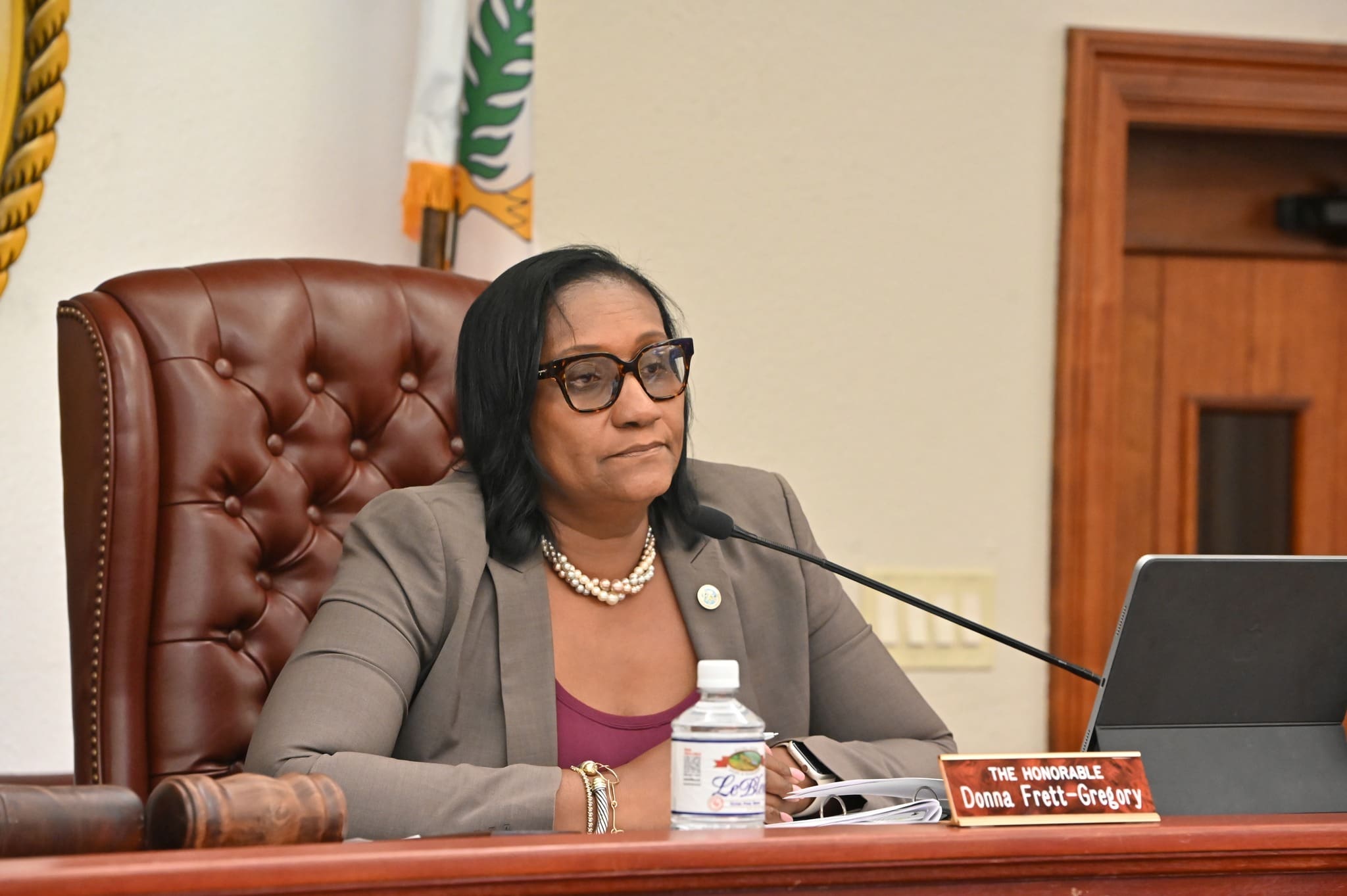
Senators called federal financial oversight via a third-party fiduciary “a trap” ensnaring the territory, a “racket,” and “a foot on our throat” at a Wednesday hearing on St. Thomas even as Virgin Islands government officials and the fiduciary outlined ongoing systemic problems in various departments.
Sen. Donna Frett-Gregory, chair of the Committee on Budget, Appropriations, and Finance, held her head in visible dismay as Sharon Murphy, a partner at third-party fiduciary McConnell & Jones, listed eight areas of key concern to be addressed before a 2006 compliance agreement with the federal Education Department could be lifted.
In 2006, the federal government labeled the U.S. Virgin Islands a “high-risk grantee” because of myriad difficulties keeping track of federal funds. Paying roughly $2.5 million a year to the fiduciaries, the territory has spent more than $42 million on third-party overseers since 2007, Frett-Gregory said.
“I am having little heart palpitations now because the same conversation we are having here is the same one we’ve been having for the last 17 years,” Frett-Gregory said. “What is out of compliance?”
In March 2007, the first third-party fiduciary, Alvarez and Marsal, pointed out areas of dysfunction that led to the territory losing tens of millions of dollars in federal education grants. The fiduciaries’ scope of operations extended to other areas of government, including Human Services, Property and Procurement, and the Finance Department. Although it still monitors those areas, the primary work is now, again, in the Virgin Islands Education Department.
The fiduciary manages roughly $288 million in federal grants, reviewing requisitions and vendor payments and financial reports. It also recommends and oversees policies and procedures related to grants, provides management reports, and offers accounting and technical assistance to compliance staff.
Murphy said the territory had made significant strides, going from 24 areas to improve in 2020 to eight, but issues remain. These included how the territory uses federal funds, how they monitor uses of those funds, payroll procedures, issues with vendor invoices, and more.
Murphy estimated the need for a third-party fiduciary would be over at the end of September 2027.
“It is significantly better,” Murphy said.
It was one of many points in the hearing where Frett-Gregory seemed to lose patience.
“What’s the challenge? What’s significantly better? Why do we not have an A?” she asked, echoing similar frustrations expressed in a 2019 hearing. “We should not be spending $2.5 million a year. It is a racket. It is.”
She and Sen. Ray Fonseca implied McConnell & Jones and the two previous third-party fiduciary companies under contract may have dragged their feet, milking the compliance agreement for a plumb assignment in the Virgin Islands.
“People come down here and they get very comfortable,” Frett-Gregory said, reviewing the list of needed improvements. “This money is leaving the territory and these things that’s in front of us are not major things.”
Fonseca said it was time for the federal Education Department to review whether the $2.5 million each year was well spent by auditing the fiduciary’s work and the actual outstanding needs.
“I think personally it’s in your best interest to keep us under these conditions,” he said to Murphy. “This here, to me, is a way to continue us into a trap. It’s a trap.”
Senate President Novelle Francis said ongoing compliance issues — including government employees failing to correctly file their timesheets, properly fill out paperwork for procurement and other invoices, and other shortfalls — indicated the fiduciary oversight was failing. He said tying federal money to the compliance agreement was hindering the Virgin Islands.
“The federal government continues to have their foot on our throat,” Francis said. “It’s a real pay-to-play environment with the federal government and it’s really unfair.”
Frett-Gregory said Murphy and her team of nine were not doing their job well enough. Time and again, Murphy responded simply, “Yes, ma’am.”
Julio Rhymer Sr., acting director of the Virgin Islands Office of Management and Budget, acknowledged an 11 percent error rate within various areas of concern was too much, but reaching a three percent or zero error rate, as Murphy suggested, was not practical or even possible, he said.
Frett-Gregory said Rhymer, who was nominated director Sept. 30, had a lot of work to do ensuring compliance rates that would get the fiduciary out of the territory. Rhymer said his goal was to have the needs met and the overseer gone by December 2025.
McConnell & Jones’ contract ends at the end of November, Murphy said, and, per federal rules, goes back out to competitive bid.
Despite her frustrations, Frett-Gregory asked if there was a way to extend McConnell & Jones’ contract for a year for continuity.
“Every time we switch, the goalpost gets farther away,” she said.
There was no clear answer.





